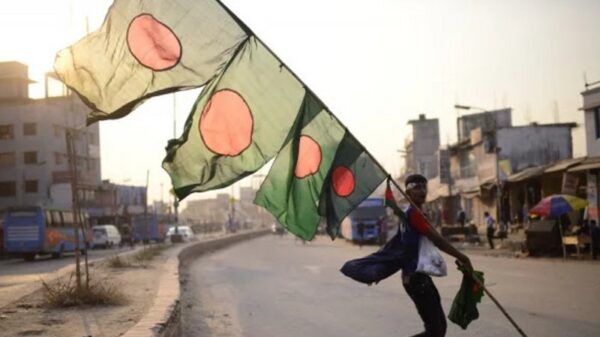EU heads of government have promised “further restrictive measures” against Iran, with additional sanctions aimed at its missile and drone production looking likely. The steps are part of the first tranche of conclusions from the European Council meeting in Brussels, writes Political Editor Nick Powell.
EU leaders agreed to a message of both support and restraint to Israel. The Council “strongly and unequivocally” condemned the Iranian attack on Israel and reaffirmed its “full solidarity with the people of Israel and commitment to Israel’s security and to regional stability”.
A message urging “all parties to exercise the utmost restraint and to refrain from any action that may increase tensions in the region” reflects European concerns that Israeli retaliation for Iran’s missile and drone attack could lead to a wider conflict. But it’s “Iran and its proxies” that must “cease all attacks”.
Further restrictive measures against Iran are promised, notably in relation to drones and missiles. EU foreign ministers have already begun the process of defining additional sanctions against Iran’s production of these weapons.
It is of course impossible to discuss Iran’s attack on Israel and the actions of its proxies, such as the Houthis attacking ships in the Red Sea, isolation. They are part of a wider crisis that has flowed from the Hhamas attack on Israel and the subsequent Israeli invasion of Gaza.
The European Council has declared that it “remains fully committed to contributing to de-escalation and security in the region”. It repeated its message in March of “commitment to work with partners to end the crisis in Gaza without delay”.
This included an as yet unanswered call for “an immediate ceasefire and the unconditional release of all hostages, as well as providing full, rapid, safe and unhindered access to humanitarian aid at scale for Palestinians in need”. The Council could only repeat those wards and its commitment “to a lasting and sustainable peace based on the two-state solution”.
That goal remains a distant one with a far more imminent prospect of a further escalation of tensions in the Middle East, notably in Lebanon. The EU will continue to support political reforms in that country and the strengthening of its armed forces.
For many of Europe’s leaders, this is where the impact of conflict in the Middle East gets close to home, with the prospect of a growing refugee crisis. Many of the Syrian refugees in Lebanon are willing to risk a perilous journey to Europe.
The Council confirmed “the EU’s determination to support the most vulnerable people in Lebanon, including refugees, internally displaced persons and host communities in need, as well as providing support to combat human trafficking and smuggling”.
The hoped for solution is that the Syrians who have fled their country’s civil war will be able to safely return home. As with much of the EU’s Middle East policy, that aspiration seems a rather distant one.













































